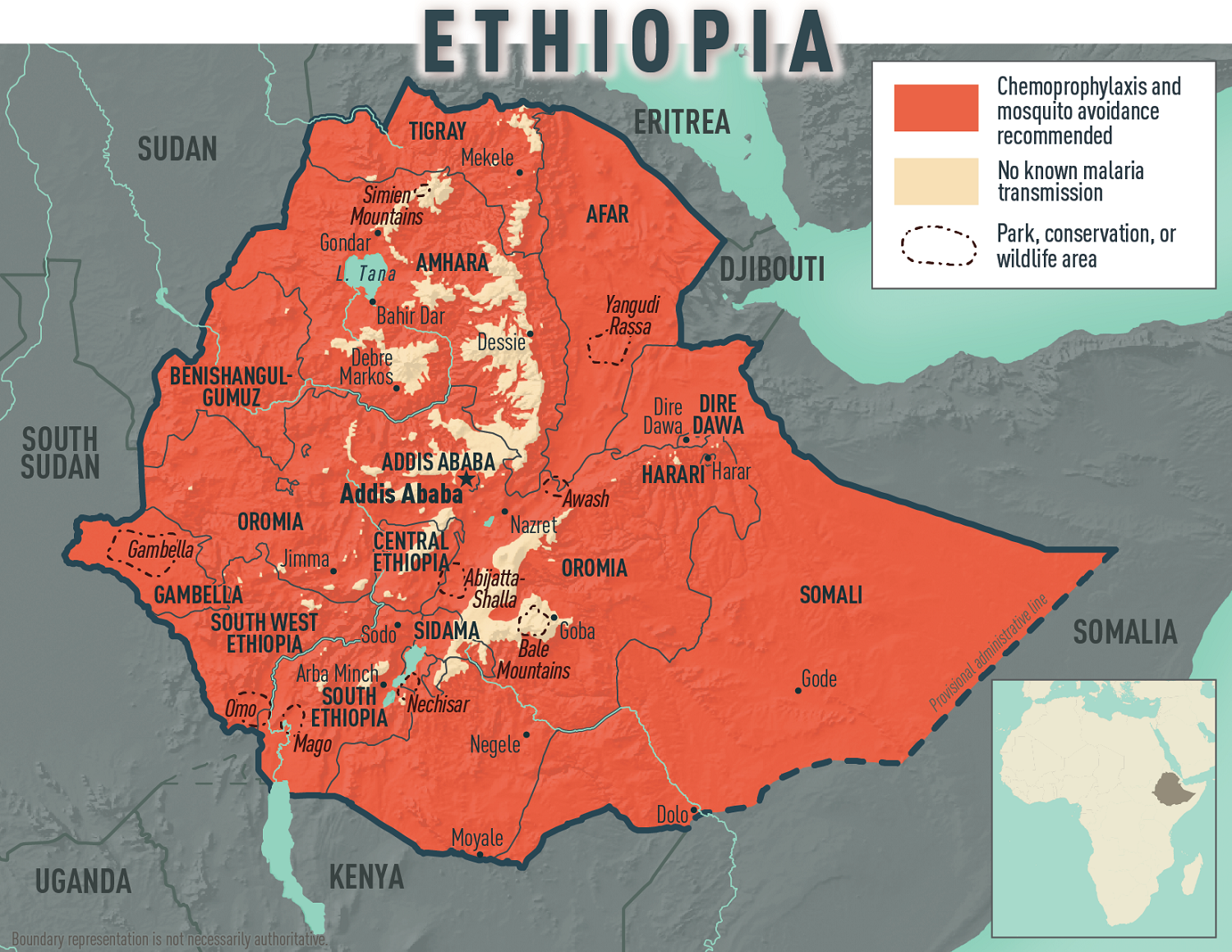Malaria in Ethiopia
Level 4 - Avoid All Travel
Level 3 - Reconsider Nonessential Travel
Level 2 - Practice Enhanced Precautions
Level 1 - Practice Usual Precautions
Key points
- There is an outbreak of malaria in Ethiopia. An increased number of cases have been reported from all 14 regions.
- Malaria is spread by the bite of infected mosquitoes.
- Malaria can be prevented by avoiding mosquito bites and taking a prescription antimalarial drug.
- If you are traveling to Ethiopia, speak with your healthcare professional about which antimalarial drug is best for you.
- Start taking antimalarial drugs before travel.
- Seek medical care immediately if you develop fever, chills, sweats, headache, vomiting, or body aches during or after travel to Ethiopia. Malaria is a medical emergency, and appropriate treatment should not be delayed.
Traveler Information
- Health Information for Travelers to Ethiopia
- CDC Malaria website
- Preventing Mosquito Bites While Traveling
Clinician Information
- Clinical Guidance: Malaria Diagnosis & Treatment in the US
- Malaria in the CDC Yellow Book (Health Information for International Travel)
- Yellow Fever & Malaria Information, by Country
- Malaria Risk Assessment for Travelers

Map of Ethiopia showing areas where chemoprophylaxis and mosquito avoidance are recommended (View larger)
What is malaria?
Malaria is a disease caused by a parasite that spreads to humans through the bite of an infected mosquito.
Early symptoms of malaria resemble those of the flu, including fever, chills, sweats, headache, vomiting, and body aches.
Malaria can be prevented by taking a prescription antimalarial drug to kill the parasites and by avoiding mosquito bites.
Without prompt diagnosis and treatment, malaria can rapidly progress to severe illness and death.